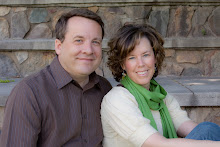 Our needed conversions are often achieved more readily by suffering and adversity than by comfort and tranquillity. Lehi promised his son Jacob that God would “consecrate [his] afflictions for [his] gain” (2 Ne. 2:2). The Prophet Joseph was promised that “thine adversity and thine afflictions shall be but a small moment; and then, if thou endure it well, God shall exalt thee on high” (D&C 121:7–8).
Our needed conversions are often achieved more readily by suffering and adversity than by comfort and tranquillity. Lehi promised his son Jacob that God would “consecrate [his] afflictions for [his] gain” (2 Ne. 2:2). The Prophet Joseph was promised that “thine adversity and thine afflictions shall be but a small moment; and then, if thou endure it well, God shall exalt thee on high” (D&C 121:7–8). Most of us experience some measure of what the scriptures call “the furnace of affliction” (Isa. 48:10; 1 Ne. 20:10). Some are submerged in service to a disadvantaged family member. Others suffer the death of a loved one or the loss or postponement of a righteous goal like marriage or childbearing. Still others struggle with personal impairments or with feelings of rejection, inadequacy, or depression. Through the justice and mercy of a loving Father in Heaven, the refinement and sanctification possible through such experiences can help us achieve what God desires us to become.
We are challenged to move through a process of conversion toward that status and condition called eternal life. This is achieved not just by doing what is right, but by doing it for the right reason—for the pure love of Christ. The Apostle Paul illustrated this in his famous teaching about the importance of charity (see 1 Cor. 13). The reason charity never fails and the reason charity is greater than even the most significant acts of goodness he cited is that charity, “the pure love of Christ” (Moro. 7:47), is not an act but a condition or state of being. Charity is attained through a succession of acts that result in a conversion. Charity is something one becomes. Thus, as Moroni declared, “except men shall have charity they cannot inherit” the place prepared for them in the mansions of the Father (Ether 12:34; emphasis added).
Dallin H. Oaks
“The Challenge to Become”
Ensign, Nov 2000















